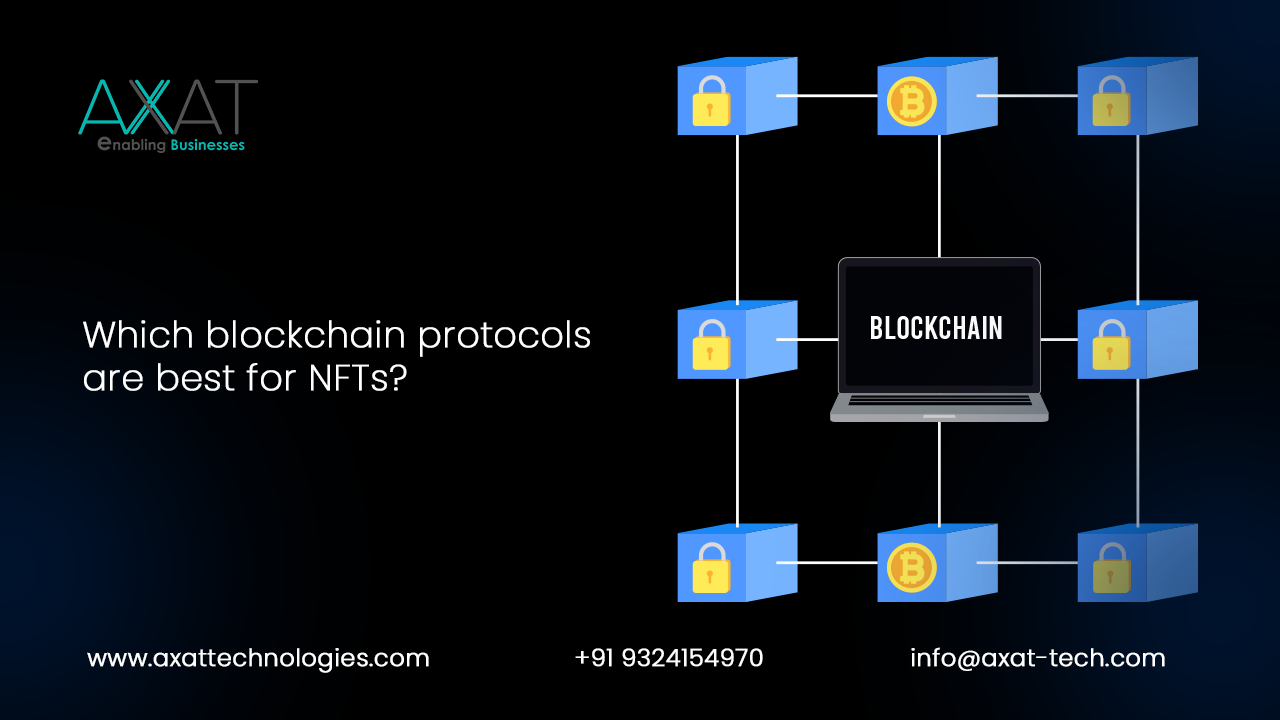Non Fungible Tokens (NFTs) have taken the digital world by storm, representing a revolution in how we understand ownership and value in the digital age. Whether it's digital art, music, virtual real estate, or collectible items, NFTs are changing the landscape of many industries. But what blockchain protocols are best suited for these unique tokens? Let's explore some of the top contenders.
Ethereum: The Pioneer
Pros:
- Established Ecosystem: Ethereum is the most well-established blockchain for NFTs. It boasts the largest developer community and a rich ecosystem of tools and platforms.
- ERC-721 and ERC-1155 Standards: These standards are the backbone of NFT creation on Ethereum, providing a robust and flexible framework.
- High Liquidity: With popular marketplaces like OpenSea, Rarible, and Foundation, Ethereum offers high liquidity and visibility for NFT creators and buyers.
Cons:
- High Gas Fees: One of the significant drawbacks is the high transaction fees, which can be prohibitive, especially for small transactions.
- Scalability Issues: Although Ethereum 2.0 promises to address these, current scalability issues can lead to slow transaction times during peak usage.
Solana: The Speedster
Pros:
- High Throughput: Solana can handle thousands of transactions per second, making it highly scalable.
- Low Fees: Transactions on Solana are significantly cheaper compared to Ethereum.
- Growing Ecosystem: With projects like Solanart and Metaplex, Solana's NFT ecosystem is rapidly expanding.
Cons:
- Less Established: While growing quickly, Solana's ecosystem is not as mature or extensive as Ethereum's.
- Centralization Concerns: There are concerns about the level of centralization, which could impact the network's security and governance.
Binance Smart Chain (BSC): The Affordable Alternative
Pros:
- Low Fees: BSC offers much lower transaction fees compared to Ethereum.
- Compatibility with Ethereum: BSC is compatible with the Ethereum Virtual Machine (EVM), making it easy for developers to port their projects.
- Rapid Growth: The BSC ecosystem is growing quickly, with platforms like BakerySwap and PancakeSwap leading the way in NFT trading.
Cons:
- Centralization Issues: BSC is criticized for being more centralized compared to other blockchains, as it is controlled by Binance.
- Security Concerns: There have been several high-profile hacks and exploits on BSC-based platforms.
Tezos: The Eco-Friendly Option
Pros:
- Energy Efficient: Tezos uses a Proof-of-Stake (PoS) consensus mechanism, which is much more energy-efficient compared to Ethereum's current Proof-of-Work (PoW) model.
- Low Fees: Transaction fees on Tezos are relatively low.
- Strong Governance: Tezos has a robust on-chain governance mechanism that allows for protocol upgrades without hard forks.
Cons:
- Smaller Ecosystem: Tezos' NFT ecosystem is smaller compared to Ethereum, with fewer platforms and marketplaces.
- Adoption Rate: Despite its advantages, Tezos has a slower adoption rate.
Flow: The NFT Specialist
Pros:
- Built for NFTs: Flow was designed specifically for NFTs and large-scale crypto games.
- Scalability: Flow offers high scalability and low transaction costs.
- Strong Backing: Developed by Dapper Labs, the creators of CryptoKitties and NBA Top Shot, Flow has strong industry backing.
Cons:
- Limited Decentralization: Flow's consensus mechanism has faced criticism for not being as decentralized as other blockchains.
- Smaller Ecosystem: Compared to Ethereum, Flow's ecosystem is still developing.
Final Thoughts
Choosing the best blockchain protocol for NFTs depends on various factors including transaction costs, scalability, community support, and specific use cases. Ethereum remains the dominant player due to its established ecosystem and robust standards. However, alternatives like Solana, Binance Smart Chain, Tezos, and Flow offer compelling advantages, particularly in terms of lower fees and higher scalability.
For those prioritizing a mature and extensive ecosystem, Ethereum is the go-to choice. Solana and Binance Smart Chain provide excellent alternatives for cost-sensitive and scalability-focused projects. Tezos offers an eco-friendly option with strong governance, while Flow is tailored for those looking to build NFT-centric applications.
Ultimately, the best blockchain for NFTs will depend on your specific needs and priorities. As the space continues to evolve, keeping an eye on emerging technologies and platforms will be key to making informed decisions.
